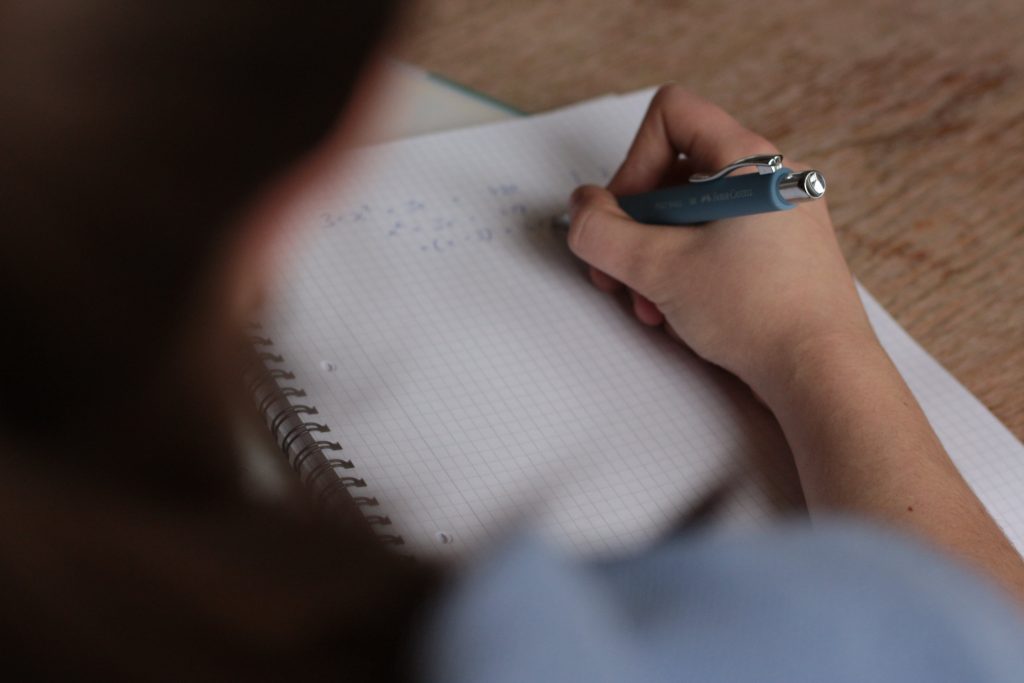
Hello, I hope everyone has been having a good weekend/week.
Today, I wanted to write a blog post about exam and performance stress, and some personal tips on coping with these difficulties.
I am a person who has often found myself struggling to tolerate stress levels prior to having to engage in performance-related activities, such as presentations, as well as prior to exams.
I have found some ways that have helped me deal with some of these anxieties that I wanted to share in case they could also prove helpful to someone else.
One tip that has helped me the most is deep breathing before a stressful situation. I find that taking some deep breaths helps me regulate my heart rate and focus before engaging in a performance or exam. I personally like the box breathing technique (Gotter, 2020). This technique involves a period of slow exhalation, slow inhalation, slowly holding your breath for a count of four, and more slow exhalation.
I also wrote a previous blog post about the importance of mindset. Correspondingly, I think that the way that we set ourselves up to an exam or presentation situation may impact our performance. For instance, I have found that positive self-talk prior to an exam or presentation helps me feel more confident and happy prior to engaging with this situation. Self-affirmation is another helpful technique, which has been supported by a robust body of social psychology literature. Self-affirmations are described as acts that affirm one’s self-worth by having individuals reflect on core values (Cascio et al., 2016). For instance, prior to an exam or other stressful performance, I like to tell myself that I am a caring person, a sister, a daughter, and a curious individual who likes learning. These are some of the valued aspects of my self, and by affirming these aspects, I am able to engage in an exam without putting too much pressure on myself in terms of how well or badly I will do. I know that even if I do not perform very well on the exam, I still have these important, valued aspects of myself that I can rely on to affirm my identity, in lieu of having to define myself based on a grade.
Another tip that I’ve found helpful, which I also described in a previous blog post, is engaging in a short spurt of physical activity prior to an exam or performance situation. This is actually a skill included in Dialectical Behaviour Therapy (DBT) for distress tolerance (Dialectical Behavioural Therapy, 2023). Temperature, intense exercise, paced breathing, and progressive muscle relaxation techniques (known as “TIPP”) are methods in DBT that are used to help cope with overwhelming emotions. Intense exercise is included as one of these skills to exert some conserved energy and balance out overwhelming feelings. Another tip included in DBT is progressive muscle relaxation, where you tighten and relax your muscles starting from the top of your body, gradually working your way to your calf muscles.
Prior to an exam or presentation, I also like to engage in some self-care or enjoyable activity. I ensure that I am well-rehearsed and have completed my studying and/or practice a couple of days before the exam or presentation. That way, the night before, I can relax and get a good night’s sleep to feel refreshed and optimistic before my exam or presentation.
As someone who tends to catastrophize, I also like to rationalize some of my thoughts. For instance, sometimes I feel like I am going to fail an exam, or that everyone will laugh at me during a presentation. Accordingly, I like to tell myself that doing my best is the most I can expect from myself. Even if I do fail, one failed exam is not the end of the world and I can always retake a course if needed. Likewise, a poorly performed presentation is just one presentation, and I will have many opportunities in the future to present and improve my performance. Moreover, it is unlikely that others will laugh at me, and if they do, it is more of a reflection on them than it is on me, and I do not need to internalize other people’s reactions to my genuine efforts on such a personal level.
I hope that some of these tips will prove helpful to someone else who struggles a bit with exam or presentation-related anxiety.
I hope everyone who reads this has a wonderful rest of their day, week, and semester!
“Note: The Free Your Mind Mental Health Society is an independent youth-led organization. The contents of this blog are not intended to be a substitute for professional medical advice, diagnosis, or treatment. Always seek the advice of your physician or another qualified health provider with any questions you may have regarding a medical condition. In the event of a medical emergency, please call your doctor or 911 or other local emergency numbers immediately.”
Image courtesy of Pexels.com
References:
Cascio, C. N., O’Donnell, M. B., Tinney, F. J., Lieberman, M. D., Taylor, S. E., Strecher, V. J., & Falk, E. B. (2016). Self-affirmation activates brain systems associated with self-related processing and reward and is reinforced by future orientation. Social Cognitive and Affective Neuroscience, 11(4), 621–629. https://doi.org/10.1093/scan/nsv136
Dialectical Behavioural Therapy. (2023). T10: TIPP. Retrieved from https://dialecticalbehaviortherapy.com/distress-tolerance/tipp/
Gotter, A. (2020, June 17). Box breathing. https://www.healthline.com/health/box-breathing#benefits
